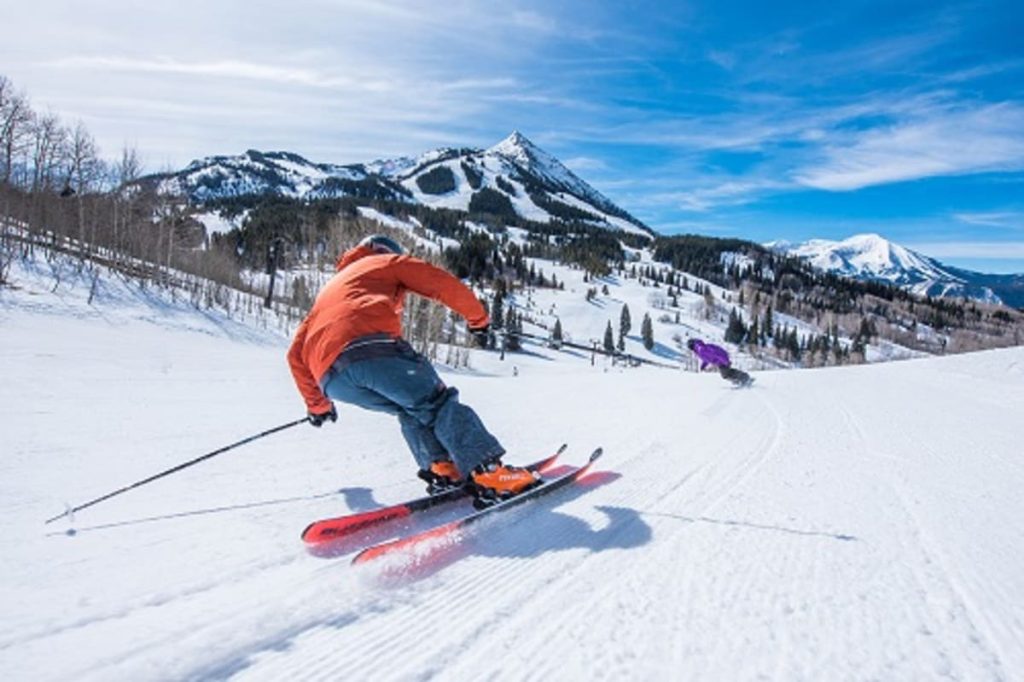The UK ski package travel market of 2024 presents a stark contrast to its peak in the 1980s and 1990s, a time often remembered as the golden era of ski tourism. During those decades, skiing was seen as an aspirational activity, luring enthusiasts to the Alps, Rockies, and Pyrenees with promises of powder-filled slopes, vibrant après-ski scenes, and a thriving sense of winter community. Resorts multiplied, tour operators flourished, and the ski lifestyle became a popularised status symbol. But today’s landscape reflects a changed industry, reshaped by shifting demographics, climate challenges, and evolving traveller expectations.

In the 80s and 90s, skiing was at the heart of a cultural phenomenon. Tour operators catered primarily to a middle-class clientele, offering extensive package holidays that included ski passes, equipment rental, lessons, and accommodation. These packages, often seen as affordable luxuries, made skiing accessible to a wide audience. Resorts continued expanding, with additional chairlifts, après-ski venues, and an abundance of restaurants and boutiques, solidifying the ski resort as a lifestyle destination. The popularity was spurred by booming economies in Europe and North America, giving people the financial confidence to spend on seasonal leisure pursuits.
Fast forward to 2024, the ski package market faces more nuanced challenges. Climate change has had a profound impact, shortening seasons, diminishing snow reliability, and increasing operating costs for snowmaking. Many lower-altitude resorts have struggled to remain viable, resulting in closures or attempts at repositioning themselves as summer adventure destinations. Meanwhile, sustainability-conscious travellers are increasingly concerned about the environmental impact of ski resorts and associated travel, leading some operators to integrate green initiatives, from carbon offsets to eco-friendly accommodations and waste reduction programmes.
Economic shifts have also altered the demographics of skiing. Skiing and snowboarding, traditionally seen as high-cost activities, have become less accessible to the middle class, and the industry is now dominated by affluent clientele. Packages that once focused on value now cater more to luxury, offering exclusive access, private instructors, high-end spa facilities, and gourmet dining. Boutique ski operators, appealing to high-net-worth travellers, are experiencing growth, while budget ski holidays are less widely available. Additionally, many younger travellers prefer city breaks or experiential trips over ski holidays, which they often perceive as expensive and weather-dependent.
Advancements in technology and social media have influenced marketing approaches, bringing both opportunities and challenges. While Instagram and TikTok offer a platform to glamorise the ski lifestyle, they also make other destinations equally attractive to younger travellers. In contrast, the 80s and 90s had a more organic appeal; print magazines and glossy brochures were the primary vehicles of inspiration, creating a sense of exclusivity around the sport. Today’s travellers are well-researched, budget-conscious, and more selective, creating a need for operators to craft packages that resonate with modern values, such as wellness, sustainability, and unique cultural experiences.
Amidst these shifts, the ski industry remains resilient, finding new ways to adapt to the changing landscape. European resorts are exploring alternatives, like guided backcountry skiing, snowshoeing, and cross-country skiing, to appeal to nature-focused travellers. The trend towards longer-stay ‘workation’ packages has also reached the ski market, with mountain resorts offering high-speed internet, remote work facilities, and the chance for travellers to combine work with mountain adventure. Some North American resorts are even exploring partnerships with nearby cities to create packages that combine urban and alpine experiences.
While the market conditions today diverge significantly from those of the 1980s and 90s, the ski industry is responding with an innovative approach, seeking to retain its place in the travel world despite external pressures. The romance of the golden era lingers, but in 2024, ski travel has transformed into a refined, environmentally conscious, and experience-driven industry. Its future will likely be defined by its ability to balance tradition with adaptation, appealing to a new generation of winter travellers while remaining connected to the roots that once defined its boom years.





